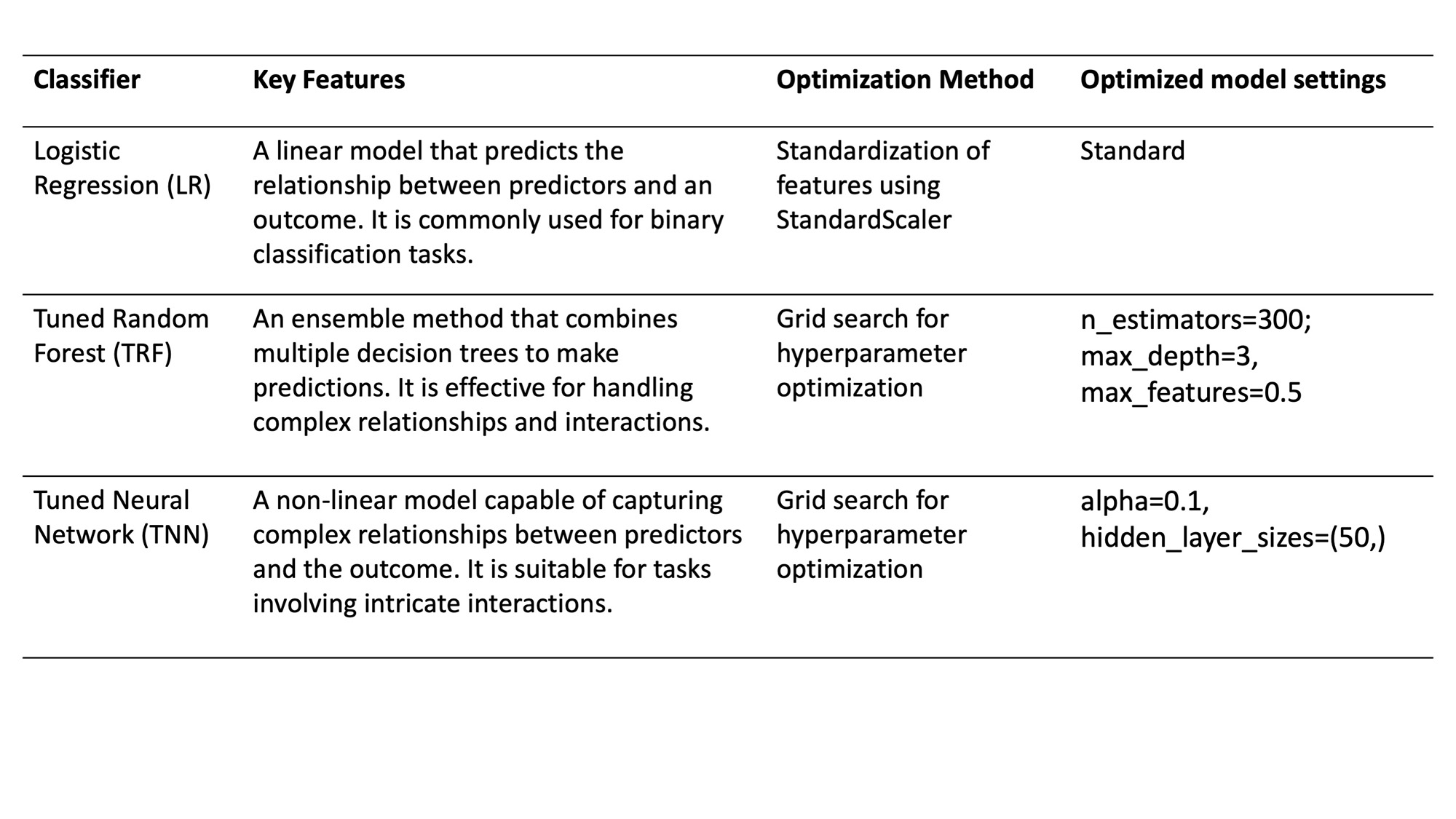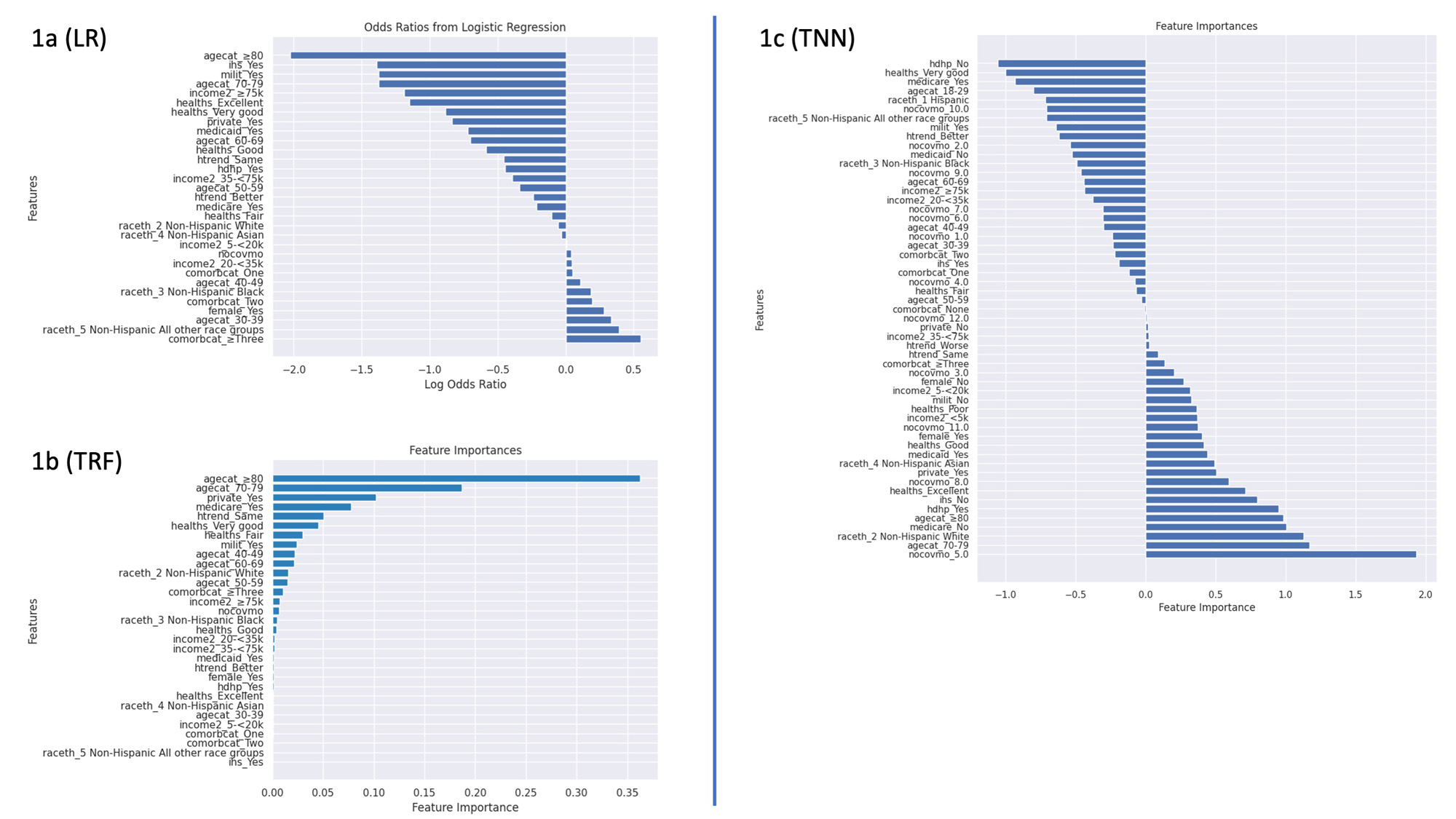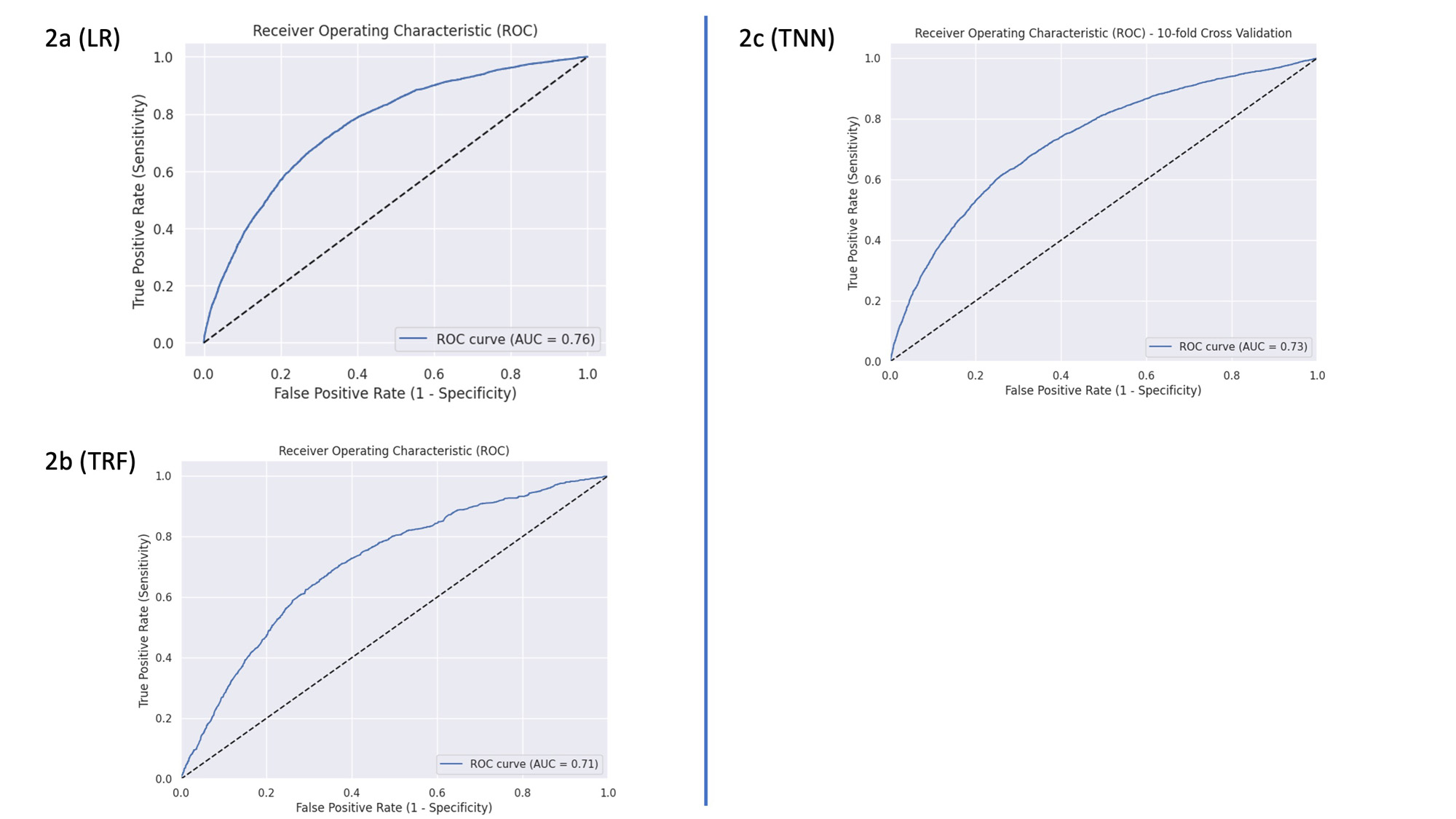Session Information
Session Type: Poster Session A
Session Time: 9:00AM-11:00AM
Background/Purpose: Cost-related medication non-adherence (CRN) occurs when patients are unable to follow their prescribed medication regimen due to financial constraints, such as high costs or lack of insurance coverage. This situation often leads patients to skip doses, take lower dosages, or delay refilling their prescriptions, resulting in negative health outcomes. Accurately predicting CRN is crucial for allocating resources effectively to those who are at higher risk. The objective of this study was to utilize machine learning classifiers to predict CRN in a nationally representative sample of US adults with chronic arthritis.
Methods: Data from the National Health Interview Survey (NHIS) collected between 2013 and 2018 were analyzed. Logistic regression (LR), tuned random forest (TRF), and tuned neural network (TNN) classifiers were employed to predict CRN using various demographic and health-related factors, including gender, race/ethnicity, age, health coverage attributes, self-reported health status, and comorbidity burden. The characteristics of the models are summarized in Table 1. Feature importance plots were utilized to assess the significance of each input in predicting CRN. Additionally, model performance was evaluated using five-fold cross-validation, and the results were visualized using receiver operating characteristic (ROC) curves.
Results: The study included 23,952 participants with chronic arthritis, among whom 4,632 (19.33%) experienced CRN. The LR classifier identified advanced age as having the smallest odds ratio, while a high comorbidity burden had the largest odds ratio (Figure 1a). Similarly, the TRF classifier indicated that advanced age was the most influential factor, followed by having private or Medicare coverage (Figure 1b). The TNN classifier identified the absence of a high-deductible health plan (HDHP) as the most significant predictor of not having CRN; on the other hand, a lapse in health coverage emerged as the most influential factor in predicting the presence of a CRN (Figure 1c). All three classifiers demonstrated comparable prediction powers, with areas under the curve (AUC) of 76%, 71%, and 73% for LR, TRF, and TNN classifiers, respectively (Figure 2).
Conclusion: Our classification models exhibited promising performance with AUC values close to three-fourths. These AUC values were obtained using five-fold cross-validated test sets, indicating robustness. However, further enhancements are necessary to improve prediction accuracy. Nevertheless, this study highlights the potential of machine learning classifiers in identifying patients at higher risk of CRN.
To cite this abstract in AMA style:
Ara A, Chenoweth M, Scannell C. Predicting Cost-Related Medication Non-Adherence in US Adults with Chronic Arthritis: A Machine Learning Approach [abstract]. Arthritis Rheumatol. 2023; 75 (suppl 9). https://acrabstracts.org/abstract/predicting-cost-related-medication-non-adherence-in-us-adults-with-chronic-arthritis-a-machine-learning-approach/. Accessed .« Back to ACR Convergence 2023
ACR Meeting Abstracts - https://acrabstracts.org/abstract/predicting-cost-related-medication-non-adherence-in-us-adults-with-chronic-arthritis-a-machine-learning-approach/



